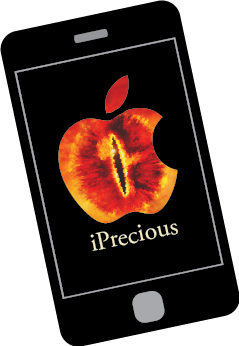Admittedly, Halloween would have been a better holiday for this post, but since superstitions have no fixed season, I thought Id dredge up an old one namely, printing as a dark art and ask if those same fears cloud our thinking today.
When Gutenberg’s vision of print manufacturing first emerged, it was a highly disruptive technology. It was feared and resented by those whose influence depended on means of communication they could easily understand and control. By mixing that fear with popular superstition, people were encouraged to resent the technology and its results as heretical or even diabolical. (The phrase printers devil is of dubious origin, but it does reflect the idea that printing was somehow not a wholesome pursuit.)
Then as now, the rapid spread of information had many detractors those fearful that easier communication would mean a flood of bad along with the good. They were right about the mixed blessing of print. After all, Gutenberg’s first work was not the Bible but a form the problematic Papal Indulgence form, to be exact. However, peoples irrational fear of the new technology was misguided, as it is today.

Print has never stopped being a mixed bag capable of transmitting the sublime, the ridiculous, and the downright destructive and demeaning. As the medium became ever more affordable, men have used it for both good and evil. Over many years, we’ve learned to live with prints negative results, and appreciate its overall value.
We had essentially the same dilemma with television (but not so much with radio, for some reason.) Commentators bemoaned the decline of civilization triggered by the Boob Tube. Come to think of it, that debate hasn’t ended. Now we face the same type of disruptive forces with Internet-based communications in general and the mobile phenomenon in particular. We fear, perhaps with some justification, the flood of new garbage that could drown out whatever good may come from our always on technology. We even fear that the technology itself not the flawed humans who abuse it is somehow inherently malevolent.
The lesson especially for those with a stake in the print medium is not to succumb to the temptation to become fearful, grumpy old men or (worse) political or philosophical inquisitors. Yes, the print business will change, and some companies will decline. However, print itself has a long future as a part of the new media mix. Digital is no more a dark art that print was at the beginning. Its a genuine opportunity. Those who have learned to do good, and even prosper with print are actually in a good position to do so with the latest generation of communications magic.
–John Parsons
